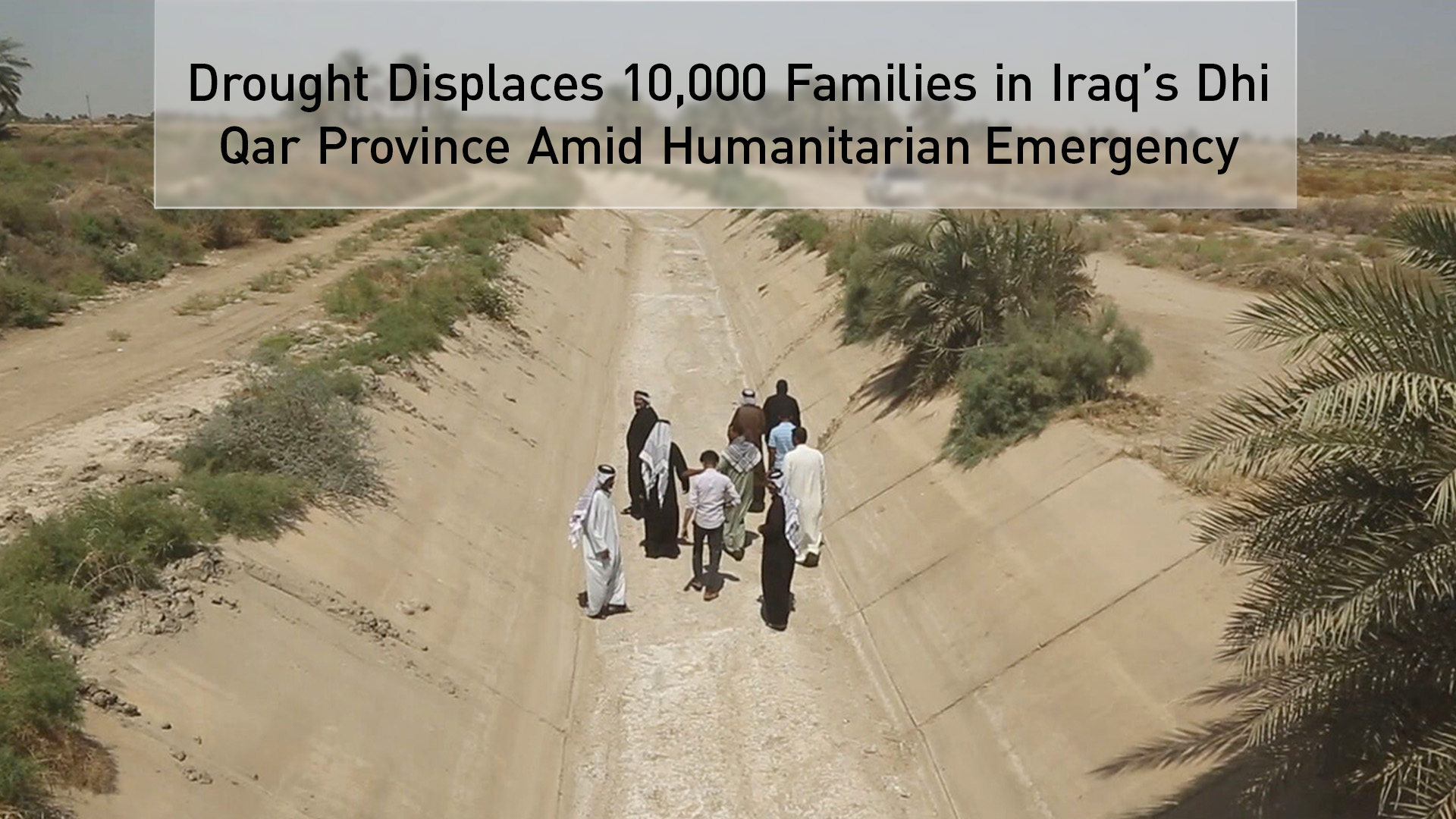Drought Displaces 10,000 Families in Iraq’s Dhi Qar Province Amid Humanitarian Emergency
“This is not just an environmental crisis—it’s a human one,” said a spokesperson for a regional NGO. “Children are sick, families are homeless, and an entire way of life is vanishing.”

ERBIL (Kurdistan24) — Severe drought conditions have forced nearly 10,000 families to flee their homes in Iraq’s southern Dhi Qar province, leaving entire villages abandoned and livelihoods destroyed, according to local residents and officials.
In exclusive remarks to Kurdistan24, residents described the scale of the disaster. “Everyone has left—no one remains here,” said one Dhi Qar villager. “All the people in our area have moved out. There’s nothing left, not even the most basic necessities of life. In the village behind mine, only two families remain out of what used to be seventy.”
Another resident, wrapped in a wool cloak to shield against dust, shared his hardship: “I’ve lost everything. I’m living in ruin. The drought dried up our wells and reservoirs, and the water we did have became contaminated. One of our young children fell seriously ill due to the water shortage.”
The humanitarian crisis has been brewing for years, but it has now reached a critical tipping point. Haider Saadi, the official in charge of the displacement and drought file in Dhi Qar, told Kurdistan24 that the crisis has overwhelmed both the provincial and federal governments. “Desertification and drought have become an unbearable burden on the local and central governments,” Saadi said. “Nearly 10,000 families have abandoned their homes due to these extreme conditions. Compared to other provinces, this is a staggering number. The threat of mass displacement is now an immediate and growing danger.”
Dhi Qar’s Struggle with Climate and Neglect
Dhi Qar, a historically agricultural province in southern Iraq, has long suffered from mismanagement, water scarcity, and the broader effects of climate change. Once known for its fertile lands and thriving marshes, the region has witnessed a dramatic decline in water levels due to upstream damming on the Tigris and Euphrates rivers, irregular rainfall, and extreme summer temperatures—often exceeding 50°C.
For years, experts have warned that Iraq is among the most vulnerable countries in the world to climate change. According to the UN, more than 39% of Iraq's agricultural land is experiencing desertification. The effects are most pronounced in southern provinces like Dhi Qar, where subsistence farmers and livestock herders depend heavily on groundwater and traditional irrigation methods.
Successive Iraqi governments have been criticized for failing to invest in water infrastructure, diversify livelihoods, or support climate adaptation. Without urgent action, experts warn, climate-driven displacement could destabilize large parts of the country and exacerbate social and economic tensions.
Humanitarian Concerns Grow
The situation in Dhi Qar has triggered calls for immediate intervention from humanitarian organizations. Aid groups have noted a growing number of families seeking shelter in nearby urban centers or attempting to relocate to northern Iraq and the Kurdistan Region, which still offers relatively more stable conditions.
“This is not just an environmental crisis—it’s a human one,” said a spokesperson for a regional NGO. “Children are sick, families are homeless, and an entire way of life is vanishing.”
A Ticking Clock
Unless national and international actors respond with swift and targeted support—including emergency water relief, sustainable agriculture initiatives, and drought resilience programs—the exodus from Dhi Qar may soon be repeated in other parts of Iraq.
For now, the abandoned villages of southern Iraq stand as a warning: in the age of climate change, the human cost of environmental neglect is no longer a distant threat—it is already here.
